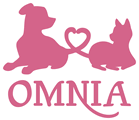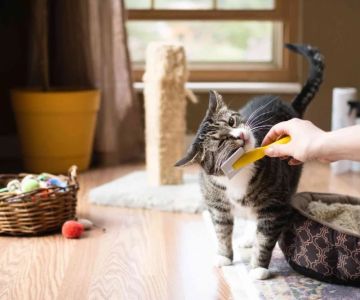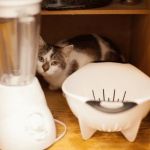
1. The Best Time of Day to Feed Your Dog: Morning vs. Evening
As a pet parent, ensuring your dog is fed at the right time is crucial to their overall health and well-being. But when exactly is the best time to feed your dog? Is it better to feed them in the morning or in the evening? In this article, we will explore the benefits and considerations of both morning and evening feeding schedules, and help you determine the best feeding time for your furry friend.
2. The Benefits of Morning Feeding
Feeding your dog in the morning is a common choice for many pet owners. There are several advantages to starting the day with a nutritious meal:

Dog and Cat Hospital Calabasas
CalabasasLos Angeles CountyCalifornia
22291 Mulholland Hwy, Calabasas, CA 91302, USA
1. Boosts Energy for the Day
By feeding your dog in the morning, you provide them with the necessary fuel to start their day with energy. This is especially important if your dog is active or needs to be alert throughout the day. Morning meals help regulate metabolism and set a good tone for their daily activities.
2. Consistency in Schedule
Dogs thrive on routine. By feeding them at the same time each morning, you help establish a predictable routine. This helps your dog know when to expect meals and can ease anxiety for pets that enjoy structure in their lives.
3. Better Digestion
Feeding in the morning ensures that your dog has plenty of time to digest their meal throughout the day. This can help prevent any issues like bloating or upset stomachs, especially if your dog tends to eat too quickly or is prone to digestive problems.
3. The Benefits of Evening Feeding
While morning feeding is popular, evening feeding has its own set of advantages that some pet owners prefer:
1. Helps Control Hunger Throughout the Night
Feeding your dog in the evening ensures they have a full stomach before bedtime, which can help keep them satisfied throughout the night. This can prevent early morning hunger pangs and provide them with a more restful sleep, which can be beneficial for both you and your pet.
2. Ideal for Bonding Time
Evening meals can be a great time for bonding with your dog. After a busy day, sitting down together for dinner can be a quiet and calm time to connect. If you have a hectic schedule, evening feeding might be more conducive to spending quality time with your dog without the rush of the morning routine.
3. May Improve Sleep Quality
For some dogs, having a meal before bed helps regulate their body clock and promotes better sleep. This is particularly helpful for dogs that tend to get restless during the night. Ensuring they have a proper meal in the evening can help them sleep soundly and wake up refreshed.
4. How to Choose the Right Feeding Time for Your Dog
Choosing between morning and evening feeding depends on various factors, including your dog’s age, activity level, and overall health. Here are some tips to help you decide:
1. Puppies and Active Dogs
Puppies and highly active dogs tend to require more frequent meals to sustain their energy. Morning feeding can ensure they have energy throughout the day. For very active dogs, consider splitting meals into two feedings – one in the morning and one in the evening – to prevent hunger during active playtimes.
2. Older or Lazier Dogs
If your dog is older or less active, evening feeding might be more suitable. Older dogs may have a slower metabolism, and feeding them in the evening ensures they aren't overfed in the morning when they are less likely to burn off the calories.
3. Personal Routine and Availability
Your daily schedule will also play a role in determining the best feeding time. If mornings are too hectic, evening feeding might be a better choice for you. It’s important to create a feeding routine that fits well with your lifestyle while ensuring your dog gets the nutrients they need at the right time.
5. Tips for a Successful Feeding Schedule
Regardless of whether you choose morning or evening feeding, consistency is key. Here are a few tips to help you establish and maintain a successful feeding schedule for your dog:
1. Maintain Regular Feeding Times
Try to feed your dog at the same time every day to create a routine. Dogs thrive on consistency, so feeding them at the same time daily will help them know when to expect their meals.
2. Monitor Your Dog's Health
Always monitor your dog’s weight, digestion, and overall health. If you notice any changes in their appetite or behavior, consult your vet to ensure that their feeding schedule is appropriate.
3. Avoid Overfeeding
Regardless of when you feed your dog, always follow portion control to prevent overfeeding. Consult your vet for recommendations on how much food your dog should eat based on their size and activity level.
6. Explore More Pet Products at Omnia Pet
If you’re looking for high-quality pet food and supplies to complement your dog’s feeding schedule, visit Omnia Pet. From nutritious meals to essential pet care products, we offer everything you need to keep your dog healthy and happy.








 Hollywood Feed4.0 (184 reviews)
Hollywood Feed4.0 (184 reviews) Brew Biscuits5.0 (2 reviews)
Brew Biscuits5.0 (2 reviews) All Friends Animal Hospital4.0 (446 reviews)
All Friends Animal Hospital4.0 (446 reviews) Kittylandkittens LLC0.0 (0 reviews)
Kittylandkittens LLC0.0 (0 reviews) Village Animal Clinic4.0 (212 reviews)
Village Animal Clinic4.0 (212 reviews) Rift Lake Aquatics4.0 (165 reviews)
Rift Lake Aquatics4.0 (165 reviews) Understanding Pet Insurance: What Does It Actually Cover?
Understanding Pet Insurance: What Does It Actually Cover? How to Keep Your Kitten's Eyes Clean and Free of Discharge
How to Keep Your Kitten's Eyes Clean and Free of Discharge The Truth About Heartworm Disease: Prevention is Cheaper Than Cure
The Truth About Heartworm Disease: Prevention is Cheaper Than Cure Why Is My Kitten's Belly Button Showing? | Omnia Pet
Why Is My Kitten's Belly Button Showing? | Omnia Pet Why Does My Cat Bite Me Gently? Love Bites Explained
Why Does My Cat Bite Me Gently? Love Bites Explained How to Stop Your Kitten from Getting into Cabinets
How to Stop Your Kitten from Getting into Cabinets